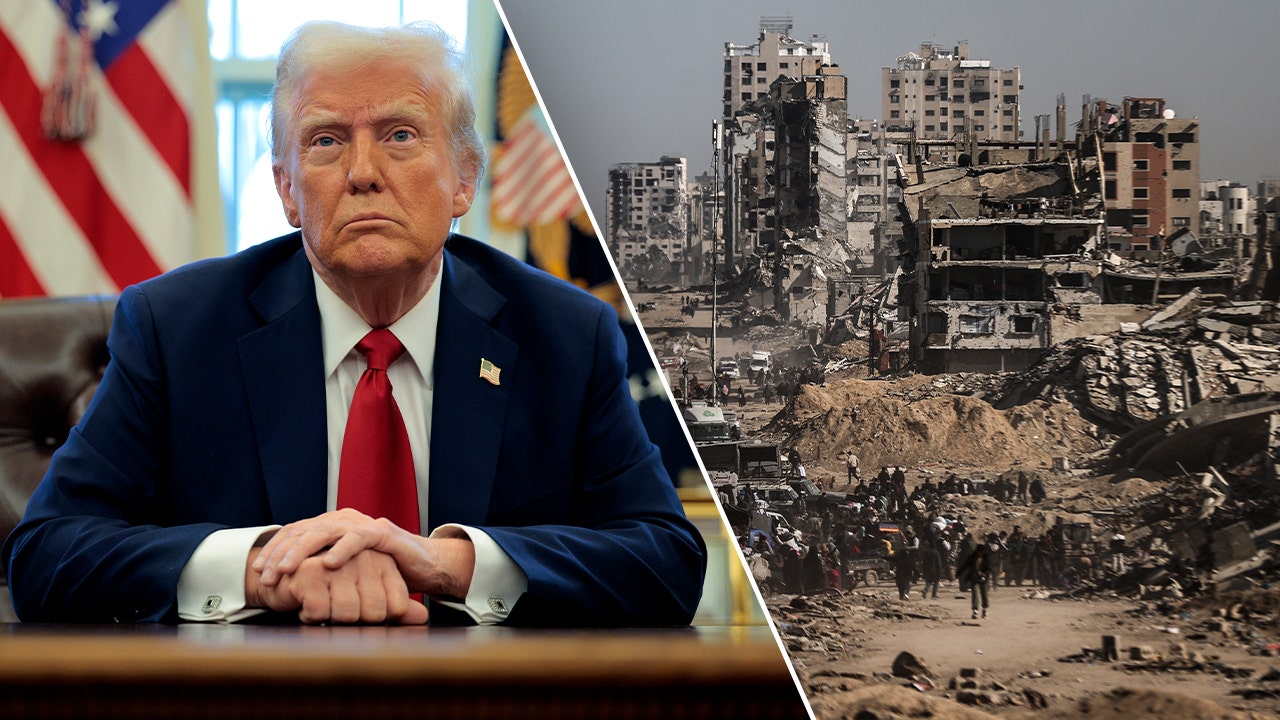World
Egypt reportedly releases details on plan to rebuild Gaza; there’s no mention of ‘cooperation’ with the US

Egypt Unveils Ambitious Plan to Rebuild Gaza Strip Amid Regional Tensions
In a bold move to address the escalating crisis in the Gaza Strip, Egypt has unveiled the initial details of a comprehensive proposal aimed at rebuilding the war-torn region over the next three to five years. The plan, which reportedly involves collaboration with Arab nations, the European Union, and the United Nations, appears to be a direct response to President Donald Trump’s controversial suggestion that the U.S. "take over" Gaza and forcibly displace its Palestinian population. While Egypt’s initiative seeks to steer the reconstruction efforts in a direction that prioritizes regional cooperation, it notably does not mention any intention to work directly with the Trump administration or Israel. This omission highlights the growing divide between Egypt’s vision for Gaza’s future and the U.S. president’s more unilateral approach.
A Two-Phase Reconstruction Plan: Addressing Immediate Needs and Long-Term Goals
The Egyptian proposal outlines a two-phase reconstruction project, with the first phase focusing on rubble removal and the construction of residential buildings. This initial effort aims to address the dire humanitarian situation in Gaza, where widespread destruction has left thousands of Palestinians without adequate shelter. The second phase would presumably focus on more sustainable development, though specific details remain unclear. Sources within the European Union have confirmed that while they were aware of Egypt’s plan to release more information at an upcoming summit with Arab nations, they were not informed about the EU’s or the UN’s potential involvement in the reconstruction efforts. This lack of communication raises questions about the extent of international collaboration and whether Egypt’s proposal is a unilateral effort or a genuinely collective endeavor.
Egypt and Jordan Push Back Against Trump’s Vision for Gaza
Egypt’s foreign ministry has made its stance on Trump’s proposal clear, stating that while it aspires to cooperate with the U.S., it firmly opposes any plan that involves displacing Palestinians or taking over the Gaza Strip. Instead, Egypt emphasizes that regional peace can only be achieved by addressing the "root cause of conflict," namely ending Israel’s occupation and implementing a two-state solution. This position is echoed by Jordan’s King Abdullah, who reiterated his country’s opposition to the displacement of Palestinians during a meeting with Trump at the White House. Jordan has also announced plans to accept up to 2,000 Gazan children in need of medical treatment, a move that underscores the kingdom’s commitment to humanitarian relief while avoiding direct involvement in the political fray.
Trump’s Determination and the Regional Response
Despite the pushback from Egypt and Jordan, Trump remains resolute in his vision for Gaza, describing it as a potential "diamond" that could be transformed into the "Riviera of the Middle East." During his meeting with King Abdullah, Trump reaffirmed his intention to "take over" Gaza, stating, "We’re going to take it. We’re going to hold it. We’re going to cherish it." This rhetoric has prompted concern among Arab leaders, who view Trump’s approach as not only unrealistic but also potentially destabilizing. Richard Goldberg, a senior advisor at the Foundation for Defense of Democracies and a former National Security Council official, noted that Trump’s comments have pressured regional governments to respond, even if their initial proposals lack substance. "These governments are most certainly scrambling to respond to a president who outlined a pretty clear vision and a determination to make it happen," Goldberg observed.
The Broader Implications of Egypt’s Proposal
Egypt’s reconstruction plan for Gaza represents more than just a humanitarian initiative; it is a strategic move to counterbalance Trump’s influence in the region and assert Cairo’s leadership in Arab affairs. By framing the proposal as a collective effort involving Arab countries, the EU, and the UN, Egypt seeks to present itself as a mediator capable of uniting disparate stakeholders around a common goal. However, the success of this plan hinges on several factors, including the willingness of international partners to contribute resources and the ability of Arab nations to set aside their differences. Moreover, the proposal’s emphasis on a two-state solution places it squarely at odds with Trump’s vision, which appears to align more closely with Israel’s interests.
A Way Forward: Humanitarian Focus and Regional Stability
As the situation in Gaza continues to deteriorate, the need for a coordinated and compassionate response becomes increasingly urgent. Egypt’s proposal, while ambitious, offers a glimmer of hope by prioritizing the immediate needs of the Palestinian people and advocating for a peaceful resolution to the conflict. However, the challenges ahead are significant, and the success of any reconstruction effort will depend on the ability of regional and international actors to work together. King Abdullah’s call to focus on rebuilding Gaza without displacing its population and addressing the humanitarian crisis reflects a shared commitment to stability and justice. Whether this vision can overcome the political divides and competing interests in the region remains to be seen, but the stakes could not be higher for the people of Gaza and the future of the Middle East.